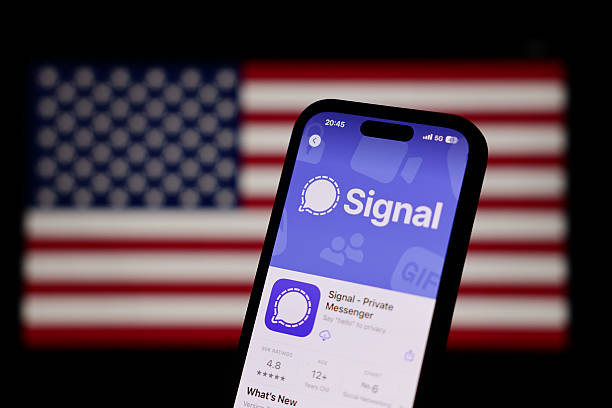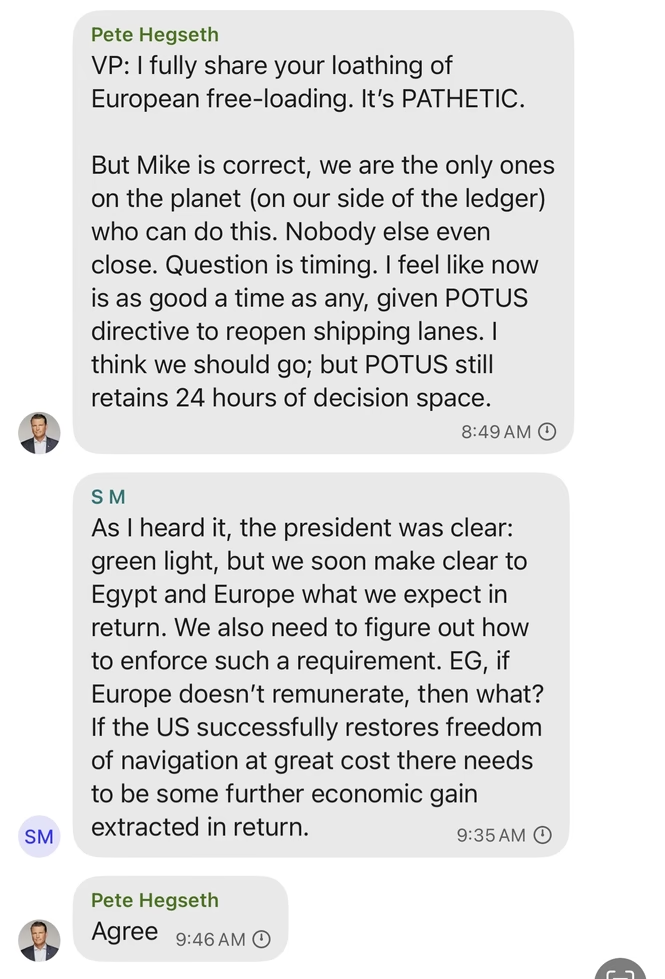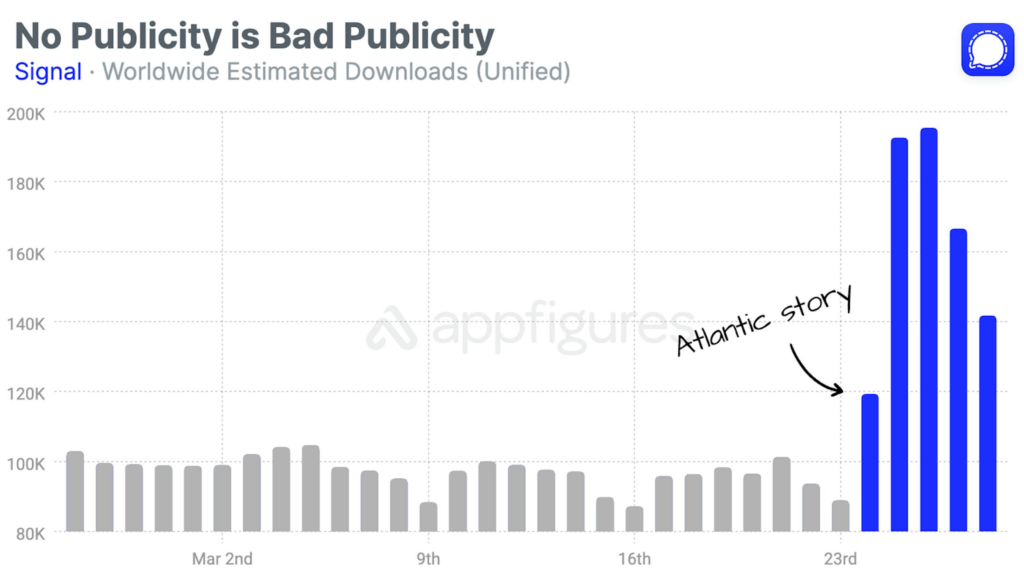
Signal, a messaging platform, has now found itself under the rubble of the U.S. government scandal of launching drone strikes on Yemen, leading to a surge in the app downloads.
Launched in 2014, Signal was created by Matthew Rosenfeld better known by his pseudonym Moxy Marlin Spike, where he merged two open-source apps, one for texting and the other for video calls. Signal, existing on an open-source code that is free for people to use and modify, is also a non-profit app.
It is an encrypted messaging platform that allows for instant messaging, voice calls, and video calls. Communications that involve both direct messaging between individuals and group messaging are end-to-end encrypted on the app, meaning even Signal itself cannot access them, only the sender and receiver can access the messages. Signal is popularly known for its strong privacy features even as its encryption protocol is open source.
It also has some features that are similar to WhatsApp’s. Signal has a disappearing messages feature, where users can set their messages to disappear automatically on Signal after a certain time. In addition to this is the hosting of circa 1000 people on a group chat by Signal users.
In a report made by the BBC in 2022, Signal boasted of approximately 40 million active users. It is, however, speculated that its current users are now over 70 million users. In the wake of the rising influence of the app that built itself on privacy, Signal has also found itself to be right in the middle of the U.S. government controversy, raising concerns and critical questions about the balance between privacy and national security in the digital age.
Recent texts from a Signal group chat have revealed plans the U.S. had on launching drone strikes on Yemen, a country situated in the Middle East. This started with Jeffrey Goldberg, Editor-in-Chief of The Atlantic revealing how someone from President Trump’s administration, Micheal Waltz, added him to a group chat on Signal that shared detailed war plans.

This group dubbed “Houthi PC small group” had important security officials such as JD Vance, the U.S. Vice President; Marco Rubio, the U.S. Secretary of State; Micheal Waltz, National Security Adviser; Pete Hegseth, Secretary of Defense; John Ratcliffe, CIA Director; Tulsi Gabbard, Director of National Intelligence; Scott Bessent, Treasury Secretary; Susie Wiles, White House Chief of Staff; and many other national security officials.
The members in this group chat discussed top-secret plans to launch drone strikes on Houthi targets across Yemen – they discussed the weapons the U.S. would be deploying, the timing, and the sequences of the attacks.
Jeffrey Goldberg in his article explains that he initially thought the chats were deepfake and it wasn’t until bombs started falling in Yemen that he believed it to be true.
While the Signal app did not malfunction in any way, it has now been involved in a state controversy. It is said that sensitive matters/discussions such as this should always be had either in person – in a SCIF (sensitive compartmented information facility) – or on what’s known as SIPRNet – a secure government system where security officials are allowed to discuss classified information.
As such, this is mainly due to a fault or a mistake on the part of the U.S. National Security Adviser, Micheal Waltz, who added Editor-in-Chief Jeffrey Goldberg to what was supposed to be a private group chat discussing sensitive military movements and operations as well as other state confidential information.

Following the publishing of Goldberg’s Article in The Atlantic, Signal saw a 26% surge in global downloads. According to a report made by Techcrunch, Signal immediately climbed to No. 9 among social media apps used in Yemen, rising from its former 50th position.
“Worldwide Signal downloads on iOS and Google Play were up 28% from the daily average over the last 30 days,” the report said. “In the U.S., downloads were up 45% on Monday, and in Yemen, they were up by 42%.”
According to an insight provided by intelligence firm Appfigures, there continues to be a surge in app downloads since the news broke last Monday. Seeing as Signal continues to gain more publicity and even more downloads as each day passes by, Appfigures attributes its controversy-backed success to “no publicity is bad publicity.”

